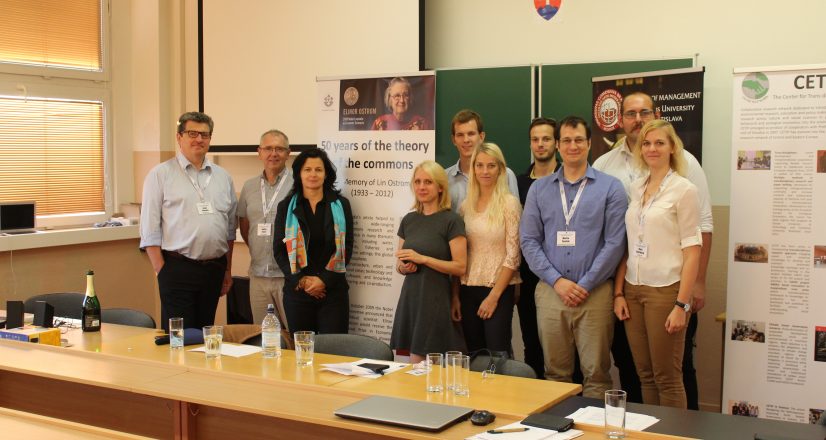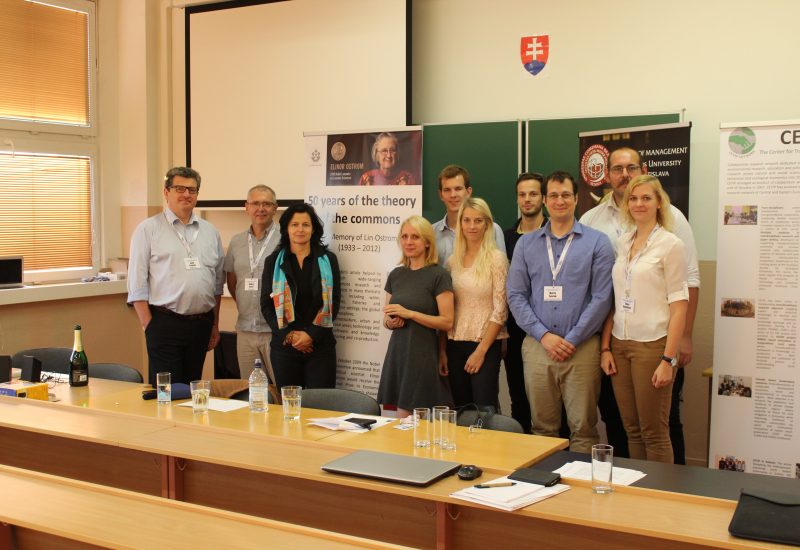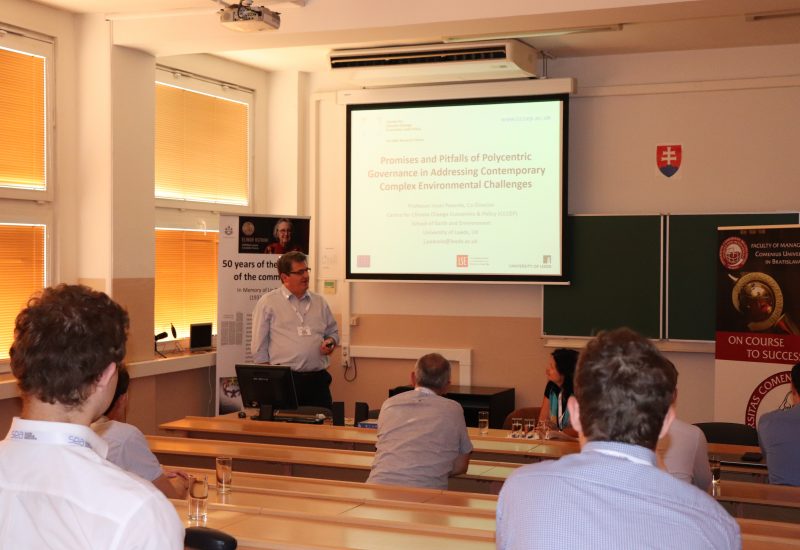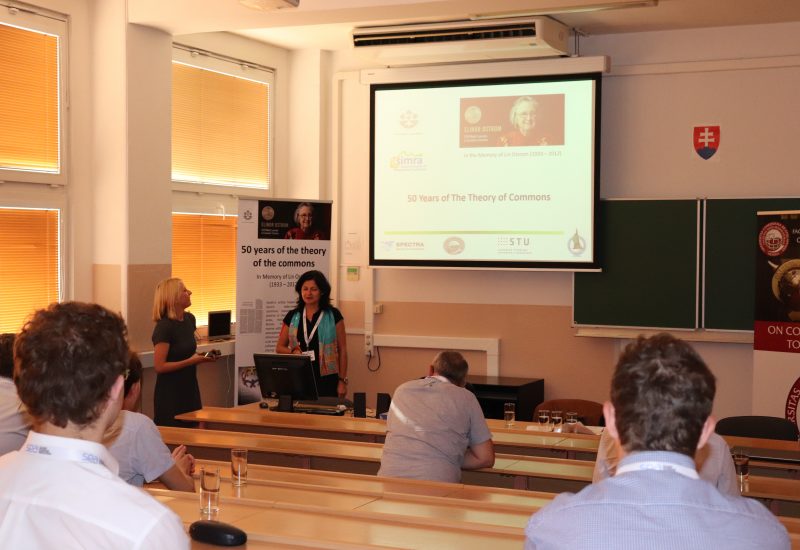9
OctGlobal challenges and local solutions?
Department of Strategic Environmental Analysis (SEA) at Institute of Forest Ecology at Slovak Academy of Sciences in cooperation with Faculty of Management at Comenius University, Slovak University of Technology and CETIP Network within the OPEN ACADEMY project organized anniversary scientific session: From Tragedy to Survival: The Journey of Polycentric Governance, which launched a series of a worldwide commemoration of the 50th anniversary of the emergence of a major interdisciplinary scientific theory of the COMMONS. The session took place at the annual Slovak Economic Association Meeting (SEAM, https://www.slovakecon.sk/seam2018/) on September 21, 2018 in Faculty of Management at Comenius University, Bratislava.
In the SCIENCE magazine 50 years ago, the ecologist Garrett Hardin defined the privatization and state regulation as an optimal solution to conflicts in using natural resources. It provoked extensive discussion and research, in which the research of American Professor Elinor Ostrom (Nobel Prize in Economics 2009) played the key role. Thanks to her, the common pool resource regime theory has been developed. The theory assumes the transfer of management and decision-making rules to collective owners or users who are able to create rules of use and decision-making, including control and sanction mechanisms. Shared management based on self-management under the long-term use rights can pursue collective targets at lower costs than centrally-regulated or market-driven regulation tools. Rules of self-control are more efficient and more accepted as those coming “from top down”. Examples of commons are ecosystem services – in the economic sense of common goods – exposed to the social dilemma of individual and collective interests. Individual interests (maximization of benefit) when using shared common goods are in conflicts with the collective interests (preservation of quality and quantity of common goods). This social dilemma often cause conflicts, the irrational use of natural resources, and their subsequent exhaustion.
During this event, SEA organized special session focused on polycentric decision-making as innovation, which can contribute to addressing conflicts´ resolutions in natural resources use, biodiversity conservation and climate change. These topics are addressed in projects SIMRA H2020 (Social innovation in marginalized rural areas, http://www.simra-h2020.eu /), Cost Action Climo and VEGA (No. 2/0013/17 – Ecosystem Services to Support Landscape Protection in the Condition of Global Change). The session´s main discussed issues were: How to mitigate the social dilemma of conflicts of interest in the global system? What can motivate cooperative strategies for the use of natural assets? The session was led by Professor Tatiana Kluvánková, and introduced the concept of polycentric decision-making and innovative contribution. Furthermore, foreign guest professor Jouni Paavola (Director of the Center for Research in economics and politics of climate change at the University of Leeds, UK) spoke with his key lecture of the utilization of this concept in mitigating and adapting to climate change. Dr. Veronika Gežík (SEA) presented the Commons concept and its contribution to the management of ecosystem services. Dr. Martin Špaček (Faculty of Management, UK) and Dr. Milan Husar (STU) presented the conclusions of the study on the use of polycentric decision-making for the management of cross-border regions and Professor Andrej Udovč (University of Ljubljana) in forest management.
The commons research at SEA Department at Institute of Forest Ecology SAS thus brings a new dimension of landscape management under the conditions of global change to the practice at the time of its 50th birthday.
Author of report: Dr. Stanislava Brnkaľáková
Author of pictures: MSc. Viera Baštáková




